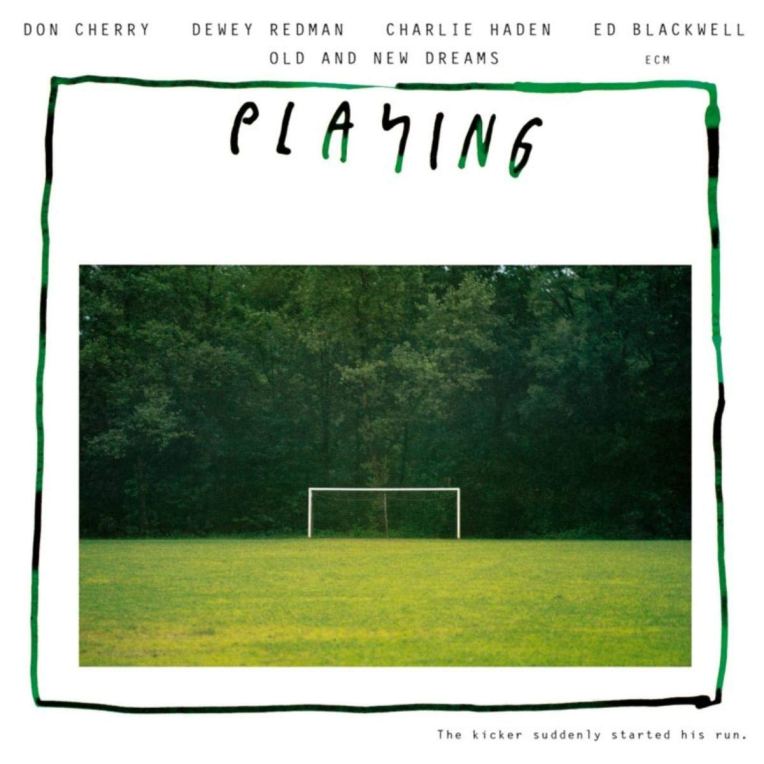Don Cherry
Ed Blackwell
El Corazón
Don Cherry pocket trumpet, piano, melodica, doussn’gouni, organ
Ed Blackwell drums, wood drum, cowbell
Recorded February 1982 at Tonstudio Bauer, Ludwigsburg
Engineer: Martin Wieland
Produced by Manfred Eicher
Two powerful proponents of the avant-garde—Don Cherry and Ed Blackwell—bare their tender souls on this set for trumpet and drums. While on paper this looks like an unusual combination, one thinks nothing of it once they start playing. Blackwell’s approach to his kit is melodic enough to carry its own, and the superb engineering gives him a wide berth, ensuring that every element has its place. Cherry’s sidelong glances into piano, melodica, and organ, meanwhile, provide plenty of traction in the duo’s more adventuresome tunes. Blackwell slips only into samplings of rat-a-tat-tat sumptuousness, favoring instead headlong flights into innumerable and equally favorable directions. The opening cluster of tunes is calm but never restrained. Allowed to go where it may, it swings and stomps in the same fluid motion. On trumpet, Cherry works in arcs, while on piano he finds solace in sharper angles. The melodica-infused “Roland Alphonso” carves its delicate reggae lines into a pathway toward the more monochromatic “Makondi,” a brief incantation led by kalimba, which sweeps silently under Blackwell’s solo in “Street Dancing” before reemerging in “Short Stuff.” The latter sets off another trio of interlocking themes, cinched by Cherry’s clear-as-day trumpeting, and bringing us to “Near-In.” This enchanting kalimba solo, dedicated to Blackwell’s daughter, debunks the myth of thumb pianos as touristy curios left unplayed on our shelves by laying its potential thick across common misconception. Cherry ends on a high note, literally, with “Voice Of The Silence,” a gentle yet declamatory trumpet solo, drawn into trailing threads by a tasteful appliqué of reverb. A rather heavenward ending to an otherwise firmly rooted chain of scenes.
Like sugarcane stripped of its husk, this is immediate music, pared down to its fibrous core, and in some ways feels like a child of CODONA taking its first well-formed steps into a sonic life. In the end, it’s really Cherry who provides the rhythmic impetus for this collaboration, and Blackwell the lead. Such comfortable switching out of roles is central to their message of liberation and expression.
<< Keith Jarrett: Concerts – Bregenz/München (ECM 1227-29)
>> Eberhard Weber: Later That Evening (ECM 1231)




